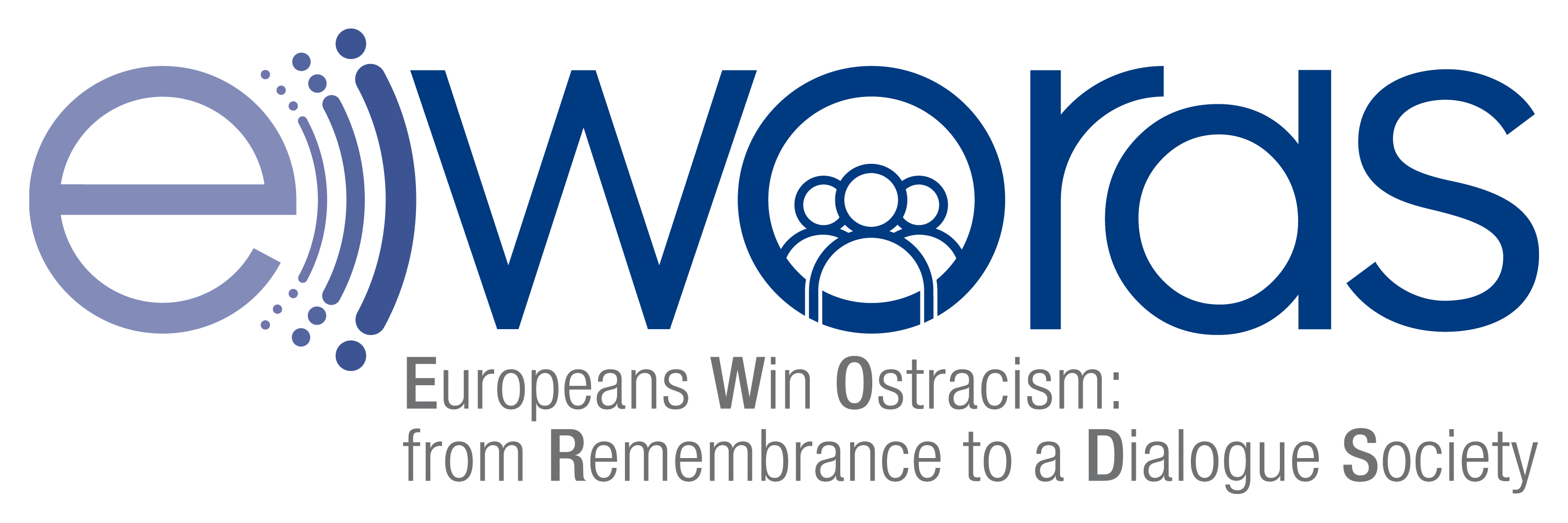Description
At present, some European political parties favor ostracism as a reaction to a period of social & economic uncertainty. To avoid repeating the mistakes of the past E-WORDS addresses young European citizens, especially students, to provide them with a sound understanding of the historical & political processes which led to the rise of totalitarianism in 20th century Europe (Nazi-Fascism in Western Europe, Communism in Eastern Europe) & the subsequent ostracism of many citizens. To achieve this, E-WORDS will facilitate the dialogue between young Europeans & the witnesses of European past totalitarianisms, sharing their own remembrance.
E-WORDS aims to spread tolerance through the intercultural dialogue, acting without prejudice, raising awareness on such processes & their consequences both from formal participate educational means & peer education, as an essential instrument to develop transversal skills among the young citizens of today’s multicultural Europe. Through an innovative analysis of key words, E-WORDS promotes reflection & debate on European cultural diversity & common values to promote peace, reconciliation, respect.
The key words (genocide, totalitarian regime, concentration camp, human rights, migration, and discrimination) are analyzed by their meaning in the past & in Europe today. For this purpose, different activities are organized by partners: webinars to facilitate the debate on keywords, seminars to share testimonies from prisoners, school students performances, young people drawings, film projections, round tables, debates on how we can fight racism against minorities groups.
E-WORDS involves young citizens (main target group), from 4 EU countries (University & school students). At University level students, the key words analysis is multidisciplinary (history, politics, law, human rights), at school the historical perspective prevails.
E-WORDS Educational Kit (collection of best practices) will guarantee the project sustainability & exploitation.
Activities in E-WORDS are based on the assumption that peer and informal education are the most effective means to develop a sound understanding of shared European history and enhance the awareness of democratic values. The activities will stimulate reflection and debate towards a critical approach to today’s societal challenges.
E-WORDS mainly involves young citizens (university and school students), as well as academics, teachers and civil society representatives acting as facilitators of the learning process. Among these civil society representatives, those who witnessed these historical moments will play a prominent role. Listening to their personal stories will encourage young Europeans to understand in depth the experiences of these individuals.
The strategy of E-WORDS is to develop a two-folded approach on the selected key words: (1) debates involving University students; (2) activities involving school students in the artistic elaboration of key words. For example, the drama workshops in Italy will involve students coming from many Italian cities to meet together for two days to share views on the key words. Alongside the activities involving students, debates will be organized by our public institutional partners in order to reach a wider number of people. The activities at university level will involve groups of students from diverse nationalities, who have different cultures and speak different languages. Reflection and debate on the key words, selected during the proposed activities (webinars), will create the foundation for mutual understanding of their meaning.
This process will promote the development of a European identity based on the recognition of common roots, diversity and shared values. This is the way to make young European citizens ready for a participatory democracy.
In each country, the activities at school level will bring together students of different ages and social backgrounds to reflect on the same key words.
E-WORDS also addresses one of the specific aims of the program to raise awareness of remembrance, explore our common history to promote peace, the well-being among EU citizens and avoid the danger represented by intolerance, ostracism and all ideologies based on the definition of “public enemy”.
Within this assumption E-WORDS carries a specific reference to ostracism and intolerance vis-à-vis the most discriminated sectors of our societies: migrants and refugees, Roma, homosexuals, disabled people. Not by chance, these were the very same categories of people who were victims of past European totalitarian regimes.
Learning lessons from the past, young Europeans will first explore the historical meaning of the project’s key words: genocide, totalitarian regime, concentration camp, human rights, migration, discrimination, referring to the specificity of each national experience. Then they will discuss the meaning of the same words in today’s multicultural Europe to keep the memories of the past alive as means to build the future.
After such activities, students will be capable of critically analyzing the danger represented by current attitudes towards “diversity”, answering the two fundamental questions of any democratic society: Is difference a negative word? How can a democratic society ensure that differences do not lead to ostracism?




